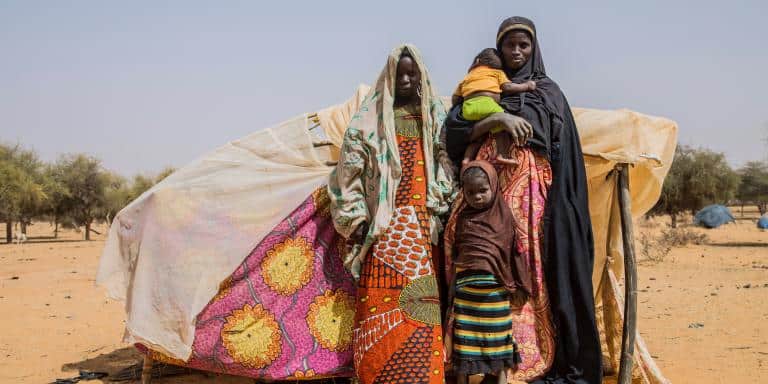The IMF has approved US$38 million emergency assistance for the Central African Republic to support its efforts in tacking COVID-19.
The country will also benefit from IMF debt service relief under the Catastrophe Containment and Relief Trust.
The Central African Republic is one of the least prepared countries to face the global outbreak with 2.2 million people already needing health assistance.
Nearly 700,000 people have been displaced from their homes with half living in densely populated camps with poor access to water, sanitation or hygiene.
Catastrophic
Health experts have warned that if the international community does not step up its support the failure to contain COVID-19 in Central African Republic could be catastrophic.
According to the Norwegian Refugee Council just three ventilators are available to help save the lives of people who contract coronavirus in Central African Republic, a country of almost five million people.
To address the urgent balance-of-payments needs, the IMF approved US$38 million emergency assistance for the Central African Republic under the Rapid Credit Facility.
So far there have been 12 confirmed cases of coronavirus in the country, and four have recovered.
The authorities, under the leadership of Faustin-Archange Touadéra have acted fast by preparing, in collaboration with the WHO, a response plan to strengthen the national health system and by implementing measures to help contain the COVID-19 spread and mitigate its impact on the economy.
Global economic downturn
The sharp global economic downturn and border closures with neighboring countries have already led to a significant reduction in economic activity, with sectors such as commodity exports, trade, and construction particularly hard-hit.
Mitsuhiro Furusawa, Deputy Managing Director and Acting Chair of the IMF’s Executive Board said in a statement:
“The global COVID-19 crisis is expected to have a considerable economic and social impact on the Central African Republic (C.A.R.), a fragile country with a volatile security environment, limited administrative capacity, and weak governance.
“The outbreak will likely affect C.A.R.’s economy both directly, as containment measures impact domestic demand and disrupt supply and trade, and indirectly, as the marked slowdown in economic activity worldwide will affect demand for C.A.R.’s commodity exports. Along with a decline in financial flows, the latter will create substantial urgent external financing needs.
Economic and human impact
He added: “To limit the pandemic’s human and economic impact, the authorities have adopted measures— including border closures, school closings, and prolonged curfews—to contain its spread and prepared, in collaboration with the World Health Organization, a response plan to strengthen the health system’s capacity. In addition, the regional central bank and banking commission are taking steps to support growth and preserve financial sector stability.”
Source: Voice-Online






